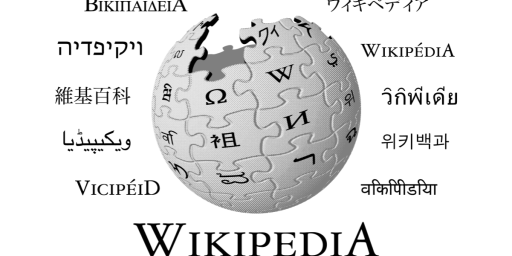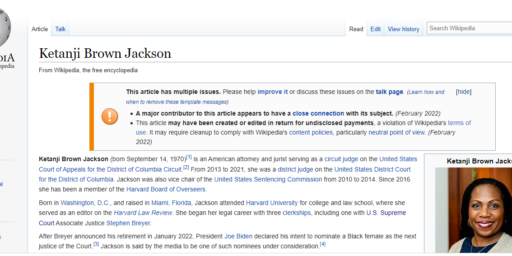Wikipedia Popular Among Educated and Wealthy
Steve Rubel points to a new Pew survey [PDF] showing that the use of Wikipedia increases with income and education even when only those who regularly use the Internet are sampled.
Pew Internet Project survey shows that Wikipedia is far more popular among the well-educated than it is among those with lower levels of education. For instance, 50% of those with at least a college degree consult the site, compared with 22% of those with a high school diploma. And 46% of those age 18 and older who are current full- or part-time students have used Wikipedia, compared with 36% of the overall internet population.
Most likely this is simply a function of Wikipedia being the most popular online reference site and college educated people are more likely to be intellectually curious enough to look things up than their less-educated counterparts rather than an increasing preference for Wikipedia per se. The study lists the top educational and reference sites:
There are no crosstabs given, though, so that we can how each of these breaks down demographically. My guess is that the education and income skews are even higher as one moves down the list to less search engine friendly sites.






Hey, I notice Conservapedia isn’t in that list…
Note that google has been promoting wikipedia in its rankings which is likely a big part of this rating. If the number one search engine puts wikipedia as the number one entry even when the wikipedia article is an unfinished stub, surprise, surprise wikipedia ranking goes up.
If the number one search engine puts wikipedia as the number one entry even when the wikipedia article is an unfinished stub, surprise, surprise wikipedia ranking goes up.
Yup. There are certain things that are automatic in Google. It’s virtually impossible to search a celebrity or movie and not get an IMDB result at the very top of the list.
Is the high ranking of IMDB, etc. simply a result of their algorithms or is it deliberate?
Is the high ranking of IMDB, etc. simply a result of their algorithms or is it deliberate?
Good question. By and large, I find IMDB to be a terrific resource. Then again, that’s generally true of Wikipedia as well.
I don’t know about the IMDB, but for wiki, they will point to a stub. That means the article has nothing more than “gee, we need to put something here at some point”. To think that any rational algorithm would find that to be the most useful search result defies reason. The more logical explanation is the fact that it is wiki counts as a lot more points than the usefulness of the actual material. It is sore of like affirmative action that looks at the url of the source and not the content of the source.
This is another self-licking ice-cream cone, kind of like the rationale offered earlier by one professor as to why there weren’t more conservatives on college faculties.
BTW, JJ, if you read this, did you ever figure out what was going with Google blogsearch? OTB is definitely in there, but it seems to not be able to find many articles from it.
My methodology is to randomly select an article from your archive, type in keywords from it, and see if the blogsearch finds it.
BTW, JJ, if you read this, did you ever figure out what was going with Google blogsearch? OTB is definitely in there, but it seems to not be able to find many articles from it.
Weird. OTB seems to index well enough in Google proper. I haven’t done much tooling around in Google Blogsearch, though.
Well now, with more education , why do they have to resort to looking things up more often??
Well now, with more education , why do they have to resort to looking things up more often??
I’ve got a Ph.D. and look things up several times a day. Educated people tend to read more and be involved in more intellectually challenging jobs. Indeed, the point of a college education is to prepare you for a life of constant learning.
Educated people are more likely to be in professional jobs and use the Internet.
Ditch diggers more likely to have less education and dirty fingernails.
Will the wonders of this world never cease.
Educated people are more likely to be in professional jobs and use the Internet.
True that. The study is limited to Internet users, however they defined that. No doubt, though, more educated people tend to use the Internet more than their less educated cohorts.